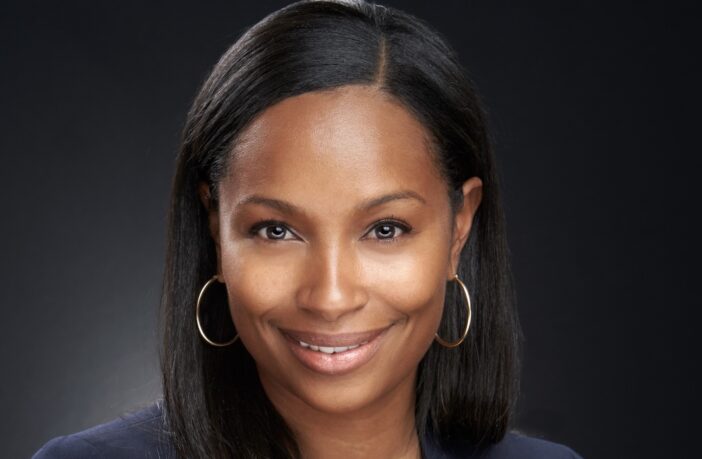Dr. Charity Chandler-Cole (Courtesy photo)
An old narrative recently resurfaced, suggesting that efforts to address racial disparities in child welfare could harm Black children, perpetuating the lie that Black parents are inherently more harmful, neglectful, or abusive than other parents. As we reflect on the long history of harm inflicted on Black families by child welfare policies, we must reject these narratives that perpetuate systemic racism and move toward genuinely equitable, intentional policies that acknowledge race and reckon with our history of racial inequity.
The history of child welfare in America is steeped in systemic racism, manifesting through laws, organizational policies and procedures, and both explicit and implicit biases. For Black families, this has meant an enduring legacy of surveillance, punishment, and family separation—often disguised as protection. This harmful legacy has led to an understandable mistrust in public systems like schools, hospitals, and social services, which are meant to offer help, but too often punish Black families who engage with them.
As a child welfare advocate with lived experience, I have witnessed firsthand the additional scrutiny Black families face when seeking support. I’ve seen well-intentioned professionals of all races grapple with what I call “role dissonance,” where they must implement policies that can harm the very communities they aim to serve. I’ve seen these professionals become numb to the bureaucracy and red tape to the point where their role becomes reflexive, instead of reactive, and they become complicit to a well oiled machine.
This environment discourages Black families from seeking the support they need, fearing that even a hospital visit or school meeting might lead to invasive scrutiny. When families hesitate to engage with these systems, it can create the appearance of neglect, or even lead to it, as needed support goes unprovided. As a society, we must own the responsibility of creating spaces where Black families can seek help without fear of judgment or punishment.
In Los Angeles, the recent pilot of “blind removal” policies aimed to spotlight race within child removal decisions, examining whether racial biases in decision-making could be reduced by removing race identifiers. However, as the UCLA Pritzker report underscores, racial disproportionality persisted, revealing that policies focused solely on “color-blindness” still fail to address the disparities embedded in the lived experiences of Black families. What we need is a child welfare system rooted in both support and racial consciousness.
Approaches that erase race fail to consider the disproportionate impact restrictive policies and reduced social supports have on communities of color. Ignoring race in this context does not protect children but rather exposes Black families to even greater risks, making them vulnerable to the consequences of policies that overlook poverty, discrimination, and resource deprivation as significant factors.
As advocates, CASAs, attorneys, teachers and social workers, we all have a responsibility to challenge harmful narratives and to support families in safely accessing resources that allow children to remain safe in their homes. When families are empowered with proper support, I have seen resilience and growth that would not be possible under punitive or deficit-based approaches.
Efforts underway in Los Angeles, such as mandated reporting reform, are shifting the focus from automatic reporting to connecting families with community-based support services. The Mandated Reporting to Community Supporting (MRCS) recommendations, which were approved by the California Child Welfare Council (CWC), provide a comprehensive blueprint for addressing systemic inequities in child welfare. These recommendations aim to reduce unnecessary reports, ensure more precise reporting of abuse and neglect, and prioritize community-based supports over surveillance.
A critical element of these reforms is equipping mandated reporters with tools and training to connect families to resources rather than defaulting to reporting. This includes creating pathways that provide culturally responsive, trauma-informed supports addressing the root causes of family challenges, such as housing instability, food insecurity, or mental health needs. For example, programs guided by the MRCS recommendations encourage counties to integrate family support systems into their child welfare practices, offering families the help they need to stay intact and thrive within their communities.
These efforts represent a shift from reactive systems to proactive, trust-based models that strengthen families, protect children, and address racial disparities head-on. Now, more than ever, we must be vigilant in rejecting narratives that perpetuate harm and inequities against Black families. I challenge us all to recognize the roles we play in either perpetuating or addressing these injustices and to commit to a future that sees, values, and supports the racial identities of those we serve with love, humanity, and understanding.
Dr. Charity Chandler-Cole is a nationally recognized advocate and leader in child welfare reform, racial equity, and community empowerment. She serves as CEO of CASA of Los Angeles and is a Commissioner on the Los Angeles County Commission for Children and Families. Dr. Chandler-Cole was also a key member of the Mandated Reporting to Community Supporting (MRCS) Task Force, where she helped develop equity-driven recommendations to transform how policies impact Black families and other marginalized communities.



